 Why You Can Trust CNET
Why You Can Trust CNET
Our expert, award-winning staff selects the products we cover and rigorously researches and tests our top picks. If you buy through our links, we may get a commission. Reviews ethics statement
We hate to be the bearer of bad news but some things need to be washed by hand.

As the proud owner of my first dishwasher, I’m tempted to toss all my kitchen gear in there for a good deep clean, but the dishwasher’s fierce cycles and scalding hot water can wreak havoc on certain cookware, flatware, glassware and cooking tools.

Most modern dishwashers have gentle cycles and other special settings for certain delicate cooking tools, but it may not be worth it to run an entire cycle with just a few items inside. Plus, hand washing your valuable kitchen tools and utensils doesn’t take long.
In short: Utilize the dishwasher for bulk items that are dishwasher safe and keep other items out. Here are 11 things that should never go in the dishwasher.
1. Insulated mugs

Insulated mugs can be damaged by the pressure from a dishwasher.
The Darling EffectFrom talking fridges to iPhones, our experts are here to help make the world a little less complicated.
The high heat and pressure of a dishwasher can damage or break the vacuum seal that makes these insulated vessels effective. Instead, wash them by hand using warm water and soap.
From talking fridges to iPhones, our experts are here to help make the world a little less complicated.
2. Wooden cutting boards
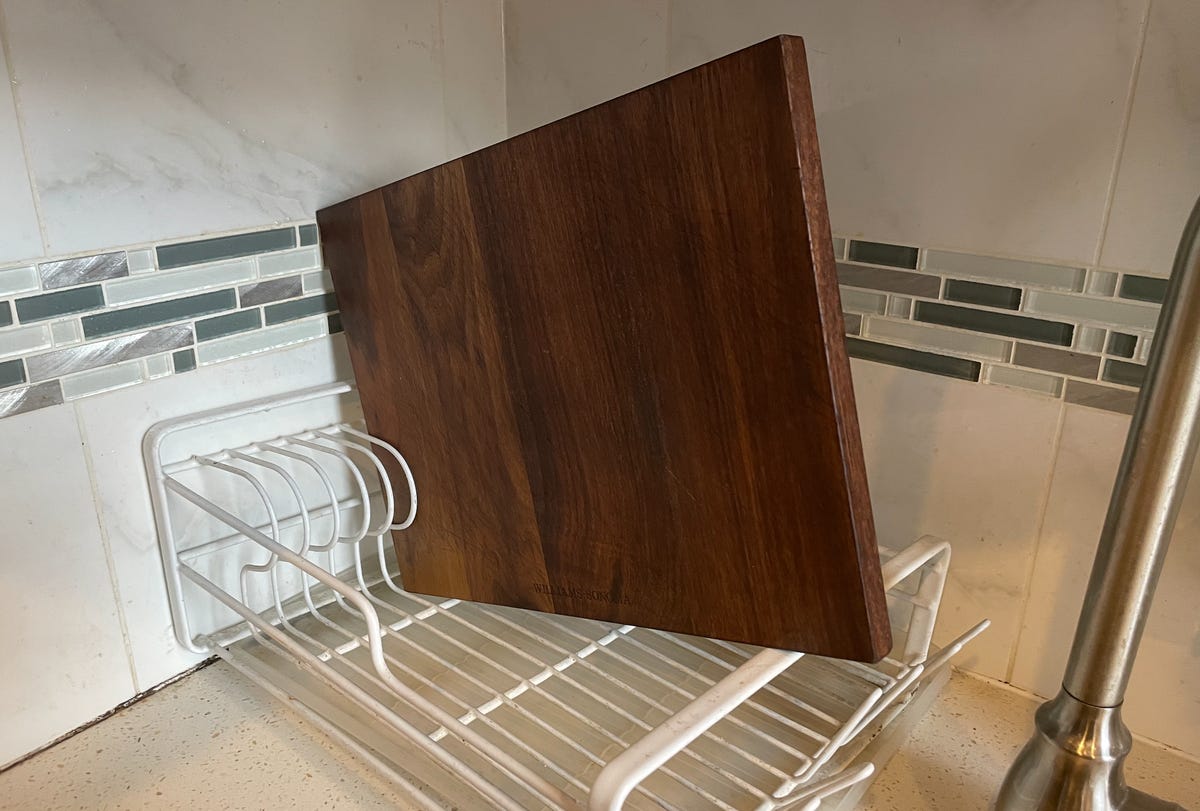
Always air-dry a wood board on its side for at least an hour before storing it.
David Watsky/CNETWood cutting boards can become damaged after even one cycle through the dishwasher. Hot water can cause even the strongest wood to warp, bend, crack or split. While plastic and stone cutting boards can typically handle the dishwasher, any wooden slab should be washed by hand and dries thoroughly on its side.
Read our guide to wooden cutting board care for more.
3. Wine glasses

Wine glasses and other thin pieces of barware should be hand washed to avoid breaking.
CB290% of wine glasses are unfit for the dishwasher. If you have thick, sturdy glasses, they may fare OK, but thin and delicate wine glasses are likely to break. Instead, wash them by hand and be sure to rinse them well so there’s no soapy residue messing with your next wine’s balanced bouquet.
4. Kitchen knives
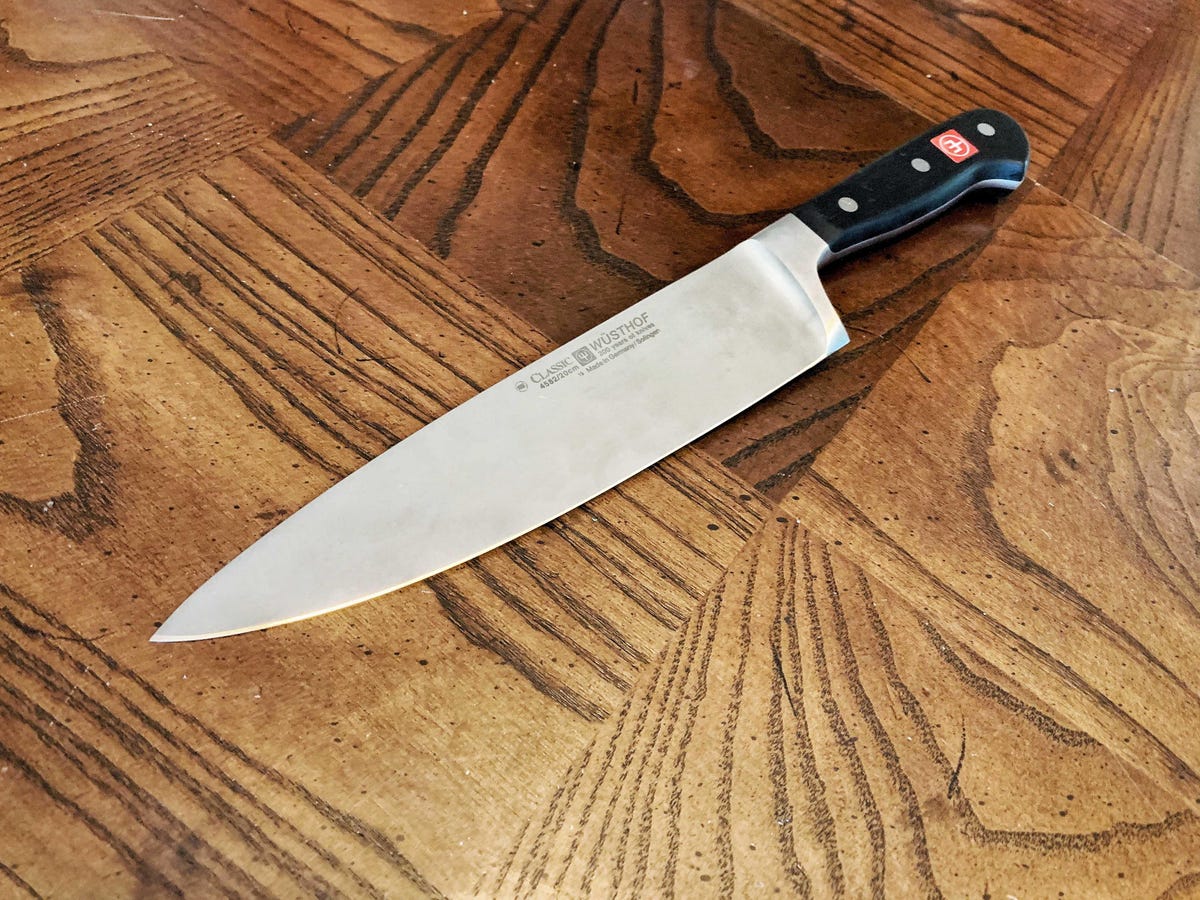
Always wash good cutlery by hand.
David Priest/CNETIf you’ve got a sharp chef’s knife and want to keep it that way, keep it out of the dishwasher. Not only will the extended soaking in hot water compromise the blade’s edge, but the dishwasher could send your knife clanking about and knocking in to other items that will ding and dull the blade.
Here’s a list of other bad habits that are ruining your knives.
5. Antiques, porcelain and fine China
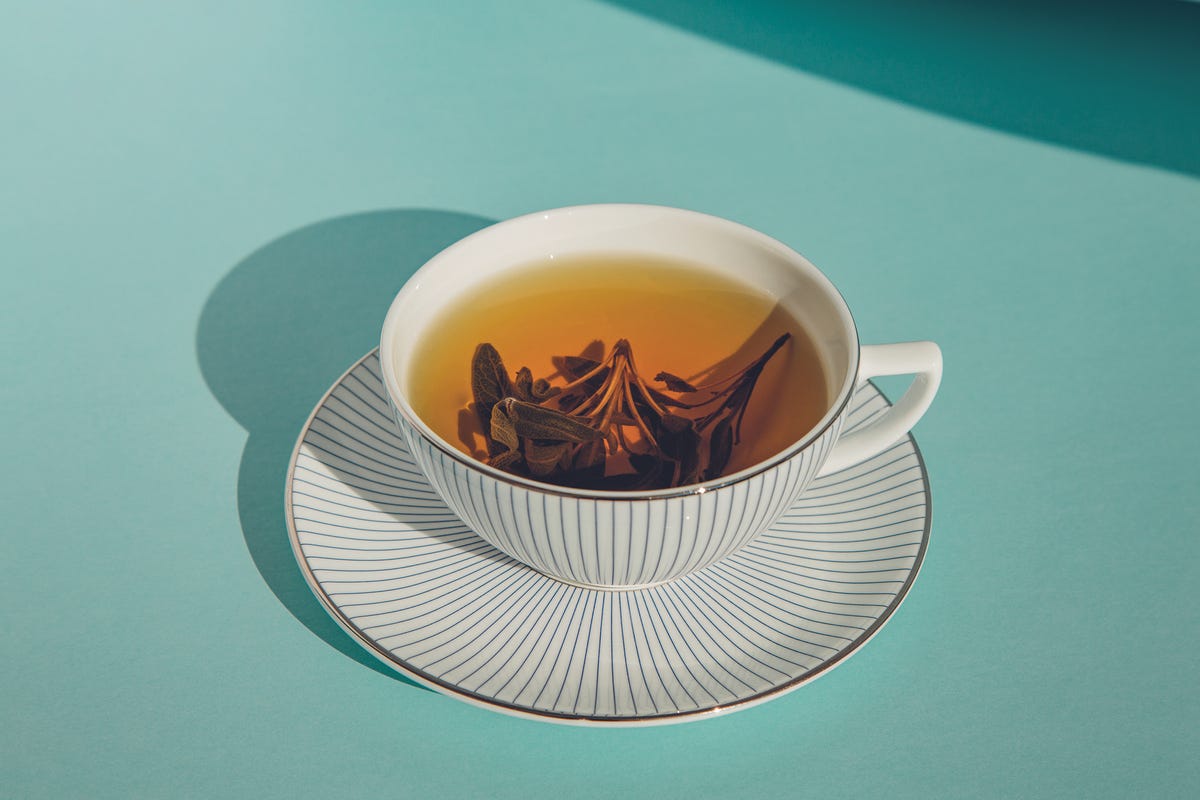
Delicate China and porcelain is susceptible to breakage.
Luliia Bondar/Getty ImagesAntique cookware, bakeware and glassware isn’t a good candidate for the dishwasher. Even if it’s labeled “dishwasher-safe,” it’s age may have compromised a once rugged integrity, making it prone to chipping or cracking. If you have vintage cookware, kitchen tools or China you love, protect them by hand washing in the sink.
While porcelain itself is dishwasher safe, porcelain wares are often thin and brittle, and running them through the dishwasher puts them at risk.
6. Nonstick cookware

Nonstick cookware can lose its chemical coating in the dishwasher.
Tharon Green/CNETMost nonstick cookware is technically safe to load into the dishwasher, but that doesn’t mean it’s a good idea. Nonstick surfaces are easily scratched and eroded when pummeled with hot water and soap or rubbed and knocked against other pots, pans or plates.
7. Copper cookware

Stainless steel is mostly dishwasher safe by copper cookware should be hand washed.
Getty ImagesWhile I don’t advocate for putting any good cookware in the dishwasher, copper cookware is especially susceptible to damage. Copper will dull and tarnish from long exposure to hot water and the metal is soft, making it vulnerable to dings and dents if knocked against other items in the rack.
8. Cast-iron cookware

Use salt and hot water to get stubborn bits off of cast-iron cookware.
LodgeYou’ve worked so hard to build up a layered seasoning and slick patina on your cast-iron skillet, and one cycle through the dishwasher has the potential to strip it all away. Harsh dish detergent is likely to reek havoc on the surface while extended soaking in hot water can cause rust. Instead, use this pantry staple to clean stubborn cast-iron pans.
9. Oil and grease
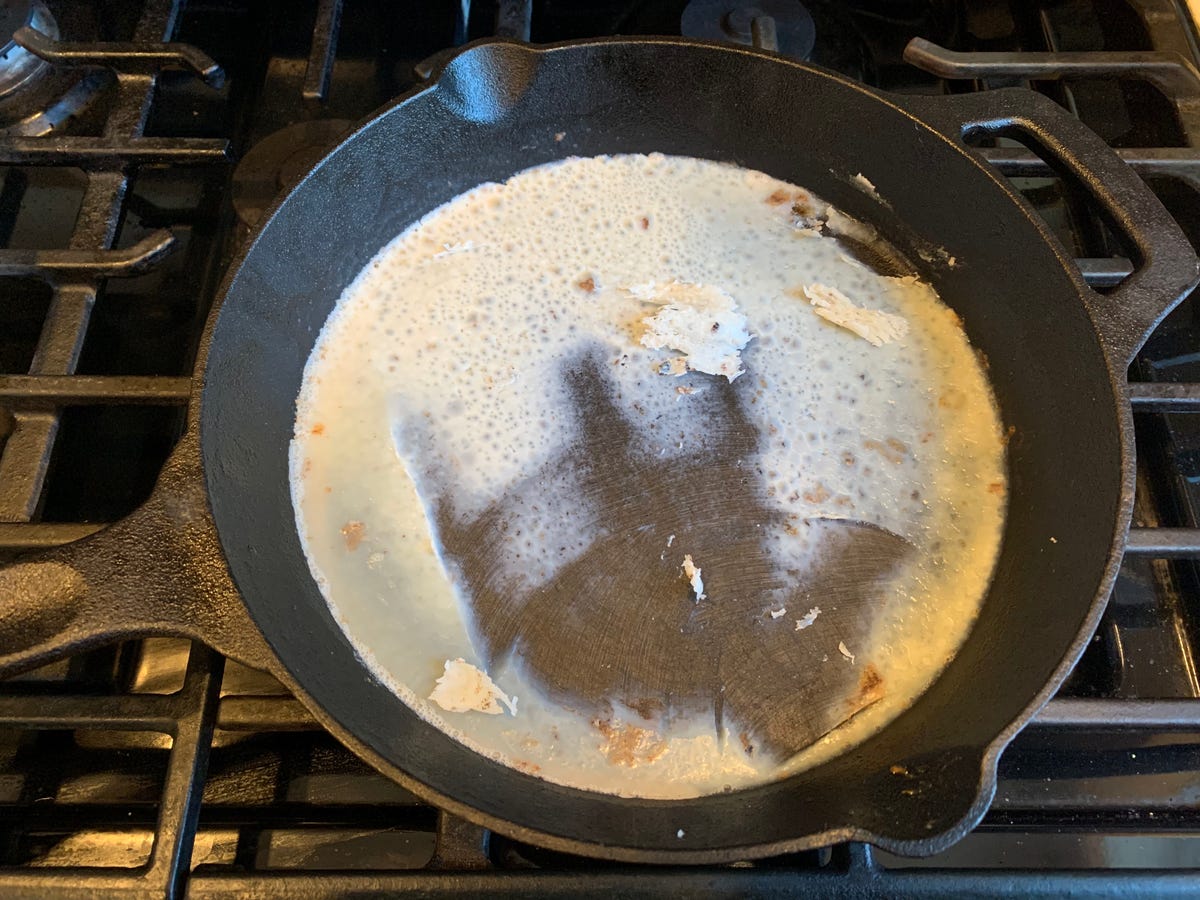
You can clog the dishwasher with just one greasy pan.
David Watsky/CNETYour instinct when confronted with a greasy, oily pan may be to huck it in the dishwasher and hope for the best. Oil and grease are notorious for causing clogs in dishwashers — and sinks for that matter.
Instead, try to discard as much of the oil as possible into the trash with a scraper or paper towel and hand wash your oily cookware well with soap and hot water. Only then, when most of the grease is removed, should you consider running it through the dishwasher.
10. Wooden utensils
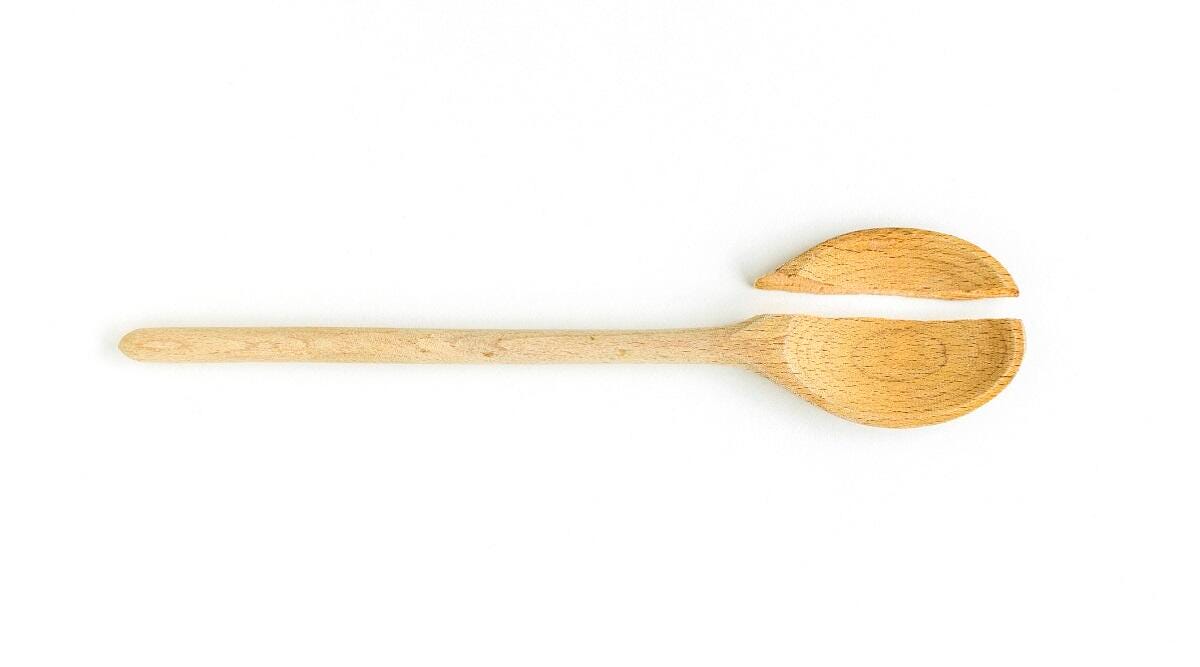
Wooden utensils and hot water are not a good mix.
Getty/Kenny WilliamsonAnything made from wood can be ruined if run through the dishwasher. That includes cooking utensils, spoons, chopsticks, bowls and anything else. Wooden items should always be hand washed and dried quickly and thoroughly to avoid splitting, warping and bacteria growth.
11. Plastic cups and containers

Food storage containers go in looking like this but come out looking like something from a Dali painting.
Getty Images/iStockphotoAcrylic bowls and other strudy plastics are fine to run through the dishwasher, but flimsier plastic containers are not. Most takeout boxes and food storage containers will melt when hit with boiling hot water. Plastic cups are also susceptible to melting and should be hand washed instead.






